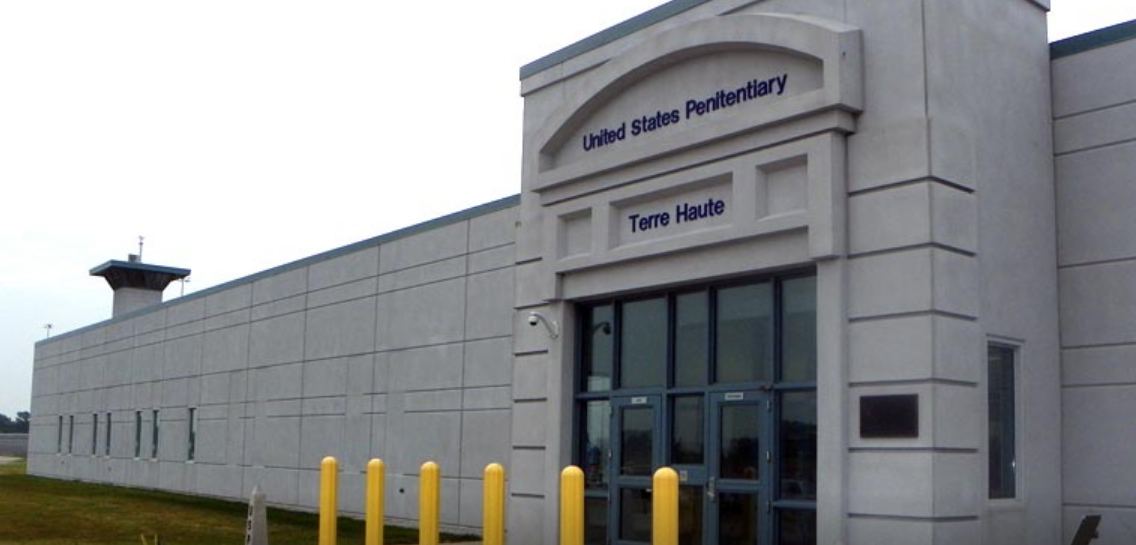
- Details
- By Native News Online Staff
TERRE HAUTE, Ind. — The U.S. Bureau of Prisons announced Wednesday it has scheduled the execution of Lezmond Mitchell (Navajo) on Aug. 26. Mitchell, 37, is the only American Indian on federal death row.
Should this execution proceed, it will be the first time in modern American history that the federal government has executed an American Indian tribal citizen.
The Navajo Nation opposes the planned execution.
Mitchell is scheduled to die by lethal injection on Aug. 26 at the U.S. Penitentiary in Terre Haute, Ind.
He was sentenced to death for the 2001 murder of two Navajo people — a woman and her granddaughter — on the Navajo Indian Reservation. Mitchell was 20 years old when the murders occurred. When convicted he had no history of violence, while his juvenile co-defendant, who was the primary aggressor and had previously murdered two people in an unrelated incident, received a life sentence.
Under the Federal Death Penalty Act, the federal government cannot seek the death penalty for crimes committed on tribal land unless the tribe allows it. The U.S. Attorney's Office in Arizona originally didn't seek the death penalty, but was pressured by then-Attorney General John Ashcroft to do so.
Since the Navajo Nation was against the death penalty in Mitchell's case, the federal government used a "loophole" to charge him with a lesser crime –– carjacking resulting in death. This allowed the government to seek the death penalty without tribal approval.
Jonathan Aminoff and Celeste Bacchi, two lawyers who are deputy federal public defenders, issued this statement on Wednesday:
“With the enactment of the Federal Death Penalty Act, Congress made a commitment to the Native American peoples that no Native American would be subjected to the death penalty for a crime committed against a fellow Native American on Native American land unless the tribe consented. In what the Ninth Circuit Court of Appeals referred to as a “betrayal of a promise made to the Navajo Nation, the Department of Justice exploited a legal loophole and sought the death penalty against Mr. Mitchell for the federal crime of carjacking over the objection of the Navajo Nation, the victims’ family, and the local United States Attorney’s Office. The federal government’s announcement that it now plans to execute Lezmond Mitchell demonstrates the ultimate disrespect for the Navajo Nation’s values and sovereignty.
The Government’s contravention of tribal autonomy did not end with the decision to pursue a death sentence against Mr. Mitchell. In addition to the charging decision, the Government committed misconduct in the course of this prosecution by confining Mr. Mitchell in a tribal jail where they continually interrogated him over the course of 25 days without providing him an attorney. Furthermore, the Government systematically excluded Navajos from serving on Mr. Mitchell’s jury, resulting in a jury composed of 11 white people and only one Navajo. Unfortunately, we have been barred from investigating concerns of juror bias amongst Mr. Mitchell’s jury. Under these circumstances, allowing Mr. Mitchell’s execution to go forward would be a grave injustice and an unprecedented affront to tribal sovereignty, and it should not be permitted to proceed. We will continue to pursue all available avenues of relief for Mr. Mitchell from his unconstitutional convictions and death sentence.”
Case background on Lezmond Mitchell can be accessed here.
More Stories Like This
Native News Weekly (August 25, 2024): D.C. BriefsMonday Morning (March 2, 2026): Articles You May Have Missed This Past Weekend
Native News Weekly (March 1, 2026): D.C. Briefs
Scope Narrowed, Report Withheld: Questions Mount Over Michigan Boarding School Study
Zuni Youth Enrichment Project Announces Family Engagement Night and Spring Break Youth Programming
Help us defend tribal sovereignty.
At Native News Online, our mission is rooted in telling the stories that strengthen sovereignty and uplift Indigenous voices — not just at year’s end, but every single day.
Because of your generosity last year, we were able to keep our reporters on the ground in tribal communities, at national gatherings and in the halls of Congress — covering the issues that matter most to Indian Country: sovereignty, culture, education, health and economic opportunity.
That support sustained us through a tough year in 2025. Now, as we look to the year ahead, we need your help right now to ensure warrior journalism remains strong — reporting that defends tribal sovereignty, amplifies Native truth, and holds power accountable.
 The stakes couldn't be higher. Your support keeps Native voices heard, Native stories told and Native sovereignty defended.
The stakes couldn't be higher. Your support keeps Native voices heard, Native stories told and Native sovereignty defended.
Stand with Warrior Journalism today.
Levi Rickert (Potawatomi), Editor & Publisher

